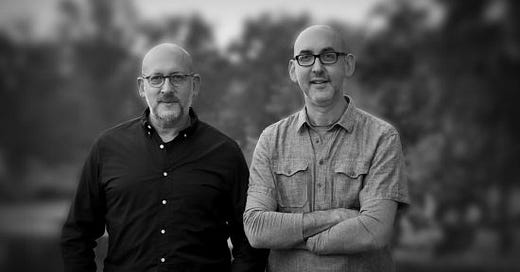Hot Startup Alert: The Spare Food Co.
The Spare Food Co. (44th) Edition of the Negative Foods Newsletter
As I wrote in the Food Waste edition of this newsletter, more than $400 billion of food (35% of the total) goes uneaten every year in the United States. Wasted food is responsible for 18% of farmland, 14% of fresh water and 4% of total carbon emissions. That’s a lot of wasted resources, and a massive contributor to climate change.
One solution to this problem is the creation of food products from surplus ingredients that would otherwise be wasted (“upcycling”). ReFED and Upcycled Food Association are leading national nonprofits working together on these matters. Upcycled ingredients are a big opportunity, with the market for food waste worth an estimated $46.7 billion in 2019 and expected to grow at 5% annually for the next decade. This is a chance for established players and startups to repurpose ingredients and create products that cater to consumers' sustainability concerns.
I met last week with the brothers Adam Kaye and Jeremy Kaye of The Spare Food Co. Adam cut his teeth as a chef, and the culinary director, at Blue Hill at Stone Barns, while Jeremy has a product management background at powerhouse brands such as Nike and Patagonia.
Jeremy and Adam talk about “wasted food” instead of “food waste,” and are working to unlock the enormous quantities of latent value in the food system. They see in wasted food “overlooked ingredients and untapped goodness,” and have created a startup to make chef-crafted delicious foods from ingredients that were previously wasted.
As co-creator of the wastEd pop-up restaurants at Blue Hill, Adam discovered a variety of culinary applications for wasted whey - which is a probiotic source of protein - from strained yogurt production.
The Spare Food Co.’s first product in the marketplace, which launched last April, is a sparking probiotic protein drink. This tonic is a delicious functional beverage made from four (real food) ingredients. The brothers have received support for this product from Cornell’s R&D program and the Kroger Zero Hunger / Zero Waste program. Just yesterday, New Hope announced that Spare Tonic Blueberry & Ginger is a 2022 NEXTY Awards FINALIST for the Best Beverage category at this year’s Expo West. My 16yo daughter Amelia loved the Spare Tonic I brought home to sample.
This tonic isn’t just a great product for consumer enjoyment. It’s a chance to upcycle the approximately one billion pounds of unutilized whey from strained yogurt production in the State of New York. And a chance to create new revenue streams for local food producers and farmers.
The Spare Food Co.’s plan is for all of their products to be made from ingredients that are 80-95% upcycled. Adam and Jeremy are working on future products made from excess vegetables from regional farms they’ll follow seasonally up and down the east coast.
Why do I think this duo will succeed? The products are created with a talent for deliciousness that Adam honed at Blue Hill, and presented to consumers with product management expertise that Jeremy honed at J Crew, Patagonia and Nike. I’m impressed with the systems thinking informing the company’s strategies. Consumer demand will continue to rise for products with improved carbon footprints.
Adam and Jeremy are soon heading out to raise capital to support the growth of this hot startup, and I’m looking forward to doing everything I can to help them.
For Your Consideration:
Spare Tonic Offers a Sip of Consciousness in a Can From Westchester
Texas Ranchers Get Paid to Capture Carbon
Carbon is not a dirty word: the case for recarbonizing our soils
If farmers spray these microbes on crops, they don’t need synthetic fertilizer
New environmental labelling system unveiled
Bear Grylls joins upcycled salmon snack maker Goodfish
eAgronom closes $7.4M Series A to create a farming-based carbon credits platform
Agricultural Carbon Markets Are Not a Climate Solution
It’s time to hold agrifood corporates accountable for their climate commitments. This list may help
Ancient Nutrition partners with Rodale Institute for regenerative ag transition
What Is the Future of Organic?
SIMPLi, a supply chain disrupter, breaks new ground with ROC
A Sustainable Approach to Agroforestry Integration
3 Regenerative Organic Certified brands to meet at Expo West
How Producers Are Making Climate-Friendly Winemaking a Reality
USDA Invests US$1 Billion in Climate-Smart Agriculture
Nestlé to open a new Institute of Agricultural Sciences
See the True Cost of Your Cheap Chicken
Why we need biodiversity on our dinner plates — and why it’s disappearing
Splendid Spoon stirs its strategy to get you to love plant-based foods
Insect agriculture company raises $2.5 million
A Carbon Credit Market in Italy Provides New Revenue Streams for Olive Growers
Aspen Institute Food is Medicine Initiative
The views in this newsletter belong solely to Paul Lightfoot (and not to BrightFarms or other organizations). This newsletter accepts no advertising. Learn more about this newsletter at https://paullightfoot.substack.com/about.




